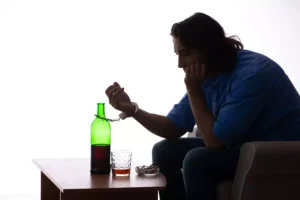
Feel free to use some or all of the examples and adapt them to meet your own specific needs. If sending a letter isn’t your style, use these suggestions to help you organize your thoughts before you have a conversation to ask for support. Schedule I drugs are substances with no currently accepted medical use and a high potential for abuse.
Recognize that there’s a lot to learn about substance use disorder
It can also keep your mind off of the drug cravings that you might be experiencing. When you are trying to stop smoking marijuana, it is essential to get rid of any marijuana-related paraphernalia in your home. Getting rid of the drug itself is crucial, but you should also eliminate any pipes, bowls, bongs, vapes, and related products.
Diagnosis of Cannabis Use Disorder

Get professional help from an online addiction and mental health counselor from BetterHelp. The information on this website is not intended to be a substitute for, or to be relied upon as, medical advice, diagnosis, or treatment. Always seek the advice of a physician or qualified health provider with questions regarding a medical condition. Take Care of YourselfSupporting someone through substance use disorder (SUD) can take a toll on your own health, if you’re not careful. Explore resources and self-care strategies, like choosing a hobby, scheduling alone time, or joining a family support group. Educate Yourself About AddictionUnderstanding that addiction is a disease, not a weakness, is crucial.
Attend therapy sessions or support group meetings

Whether you are tapering your use or quitting cold turkey, it is vital to be aware of the people, objects, or situations that can trigger drug cravings and use. Identifying these triggers and finding ways to avoid or cope with them can help you be more successful. The American Society of Addiction Medicine (ASAM) generally favors a gradual tapering approach to help minimize severe withdrawal symptoms. This can lead to feelings of shame and make them less comfortable reaching out for support. After they enter recovery, when it feels appropriate, you can slowly open up more communication with them. Try to understand how substance misuse became a routine part of their life and ask how you can best support them.
- Maybe they’re a close family member or friend, or maybe it’s someone you don’t know as well.
- These signs and symptoms can vary in intensity and duration depending on the individual and the severity of their addiction.
- By setting clear, firm boundaries, you create an environment where they are responsible for their actions while also safeguarding your own mental health.
- Consider attending support groups for weed addiction together to provide mutual support and encouragement.
- Drugs and alcohol can rewire the brain, disrupting function and leading to dependency.
Overcoming Barriers to Seeking Treatment
Many individuals struggling with marijuana addiction tend to have a history of 10 years of daily use and have attempted to quit more than six times before enrolling in a marijuana addiction program. The psychological addiction to marijuana can be powerful, and societal pressures combined with the easy availability of the drug can make quitting difficult. Withdrawal symptoms, including loss of appetite, sleeplessness, irritability, and anxiety, may also discourage individuals from quitting or cause them to relapse. Individuals entering marijuana rehabilitation typically have been using the drug predominantly daily and have tried to quit several times without success. The first step is to rid your body of the effects of marijuana through detoxification.
Healthier Ways to Cope
Marijuana addiction in your children, spouse, or other loved ones is difficult for you to live with in healthy ways. Some options are Twelve Step and support groups for friends and family, church groups, and therapy. These resources can teach you how to live your life more fully, regardless of what your loved ones are doing. You may have the opportunity to discuss the unique problem of living with a loved one’s addiction.
- Finding ways to stay busy can help distract you from some of the unpleasant withdrawal symptoms.
- ” Remind them often that you are willing to be their recovery support.
- It can lead to respiratory issues, cognitive decline, health risks, and a higher risk of mental health disorders.
She attended her first meeting on Feb. 3, 1999, the same day she revealed her struggle to her filmmaker husband Christopher Guest. „He was incredulous that he’d never noticed,“ Curtis said, adding that she’s been sober ever since. „My personal experience with it is that everything is does weed have addictive properties better,“ she continued. The Princess Diaries alum shared in April 2024 that she is more than five years sober. As she told the New York Times, „That feels like a milestone to me.“

Click your state from the list below, then input your zip code to find rehabs near you
Often, children, partners, siblings and parents are on the receiving end of abuse, violence, threats and emotional upheaval because of alcohol and drug issues. You can’t control the behavior of your loved one with the addiction. But you can remove yourself — and any children — from a dangerous situation. Keep in mind that strong emotions are part of your loved one’s addiction. The process of organizing the intervention and the intervention itself can cause conflict, anger and resentment, even among family and friends who know your loved one needs their help. There are currently no FDA-approved medications for the treatment of marijuana use disorders, but research in this area is ongoing.
The information and strategies shared here are for educational and personal growth purposes. Always consult a qualified healthcare or mental health professional for advice regarding any medical or mental health concerns. Individual results will alcoholism symptoms vary, and participation in our programs does not replace professional treatment.Copyright © 2025 LiveWellandFully.com. If you’re trying to find out how to help someone with marijuana addiction, you’re facing a challenging but crucial task.
